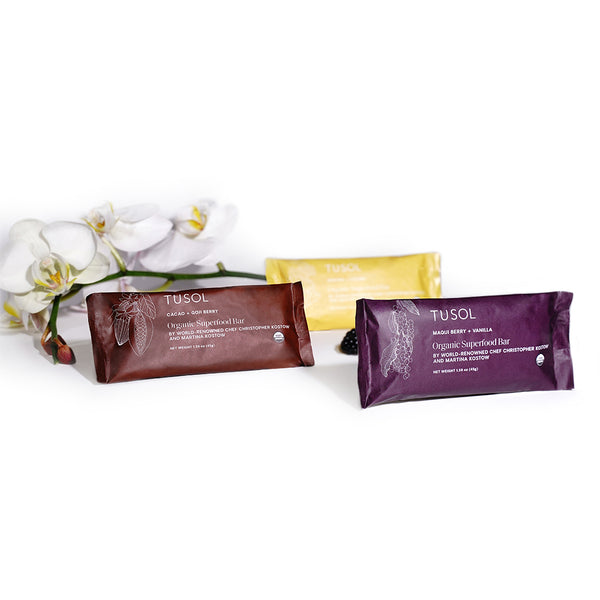Chaga mushrooms are a unique and fascinating fungus that have been used for centuries in traditional medicine, particularly in Eastern Europe and Asia. With their distinctive charcoal-like exterior and golden interior, these mushrooms may not look like your typical culinary fungi, but they are packed with an incredible array of health-promoting compounds.
Extensive research has uncovered a wide range of potential benefits associated with consuming chaga mushrooms regularly. From boosting immunity and reducing inflammation to supporting heart health and even fighting cancer, this humble mushroom truly deserves the title of a "superfood."
In this article, we'll dive deep into the science behind the health benefits of chaga mushrooms and explore why adding chaga tea or supplements to your daily routine could be a game-changer for your overall wellbeing.
Chaga Mushrooms: A Potent Source of Antioxidants
One of the most well-documented benefits of chaga mushrooms is their exceptionally high antioxidant content. Antioxidants are compounds that help neutralize harmful free radicals in the body, preventing oxidative stress and cellular damage.
Chaga mushrooms are considered one of the most potent natural sources of antioxidants, containing significantly higher levels of superoxide dismutase (SOD) - a powerful antioxidant enzyme - compared to other medicinal mushrooms like reishi and maitake.
In fact, chaga has been found to have up to 105,000 units of SOD per gram, making it an unparalleled source of this crucial antioxidant.
The antioxidant prowess of chaga is attributed to its rich concentration of phenolic compounds, including melanin, betulinic acid, and inotodiol.
These compounds have been shown to effectively neutralize free radicals, reduce oxidative damage, and support overall cellular health.
Consuming chaga regularly can help bolster your body's natural defenses against oxidative stress, which has been linked to a wide range of chronic health issues, from heart disease and cancer to neurodegenerative conditions and accelerated aging.
Chaga's Anti-Inflammatory Properties
Chronic inflammation is at the root of many of the most prevalent and debilitating health conditions today, including heart disease, diabetes, Alzheimer's, and certain cancers. Fortunately, research suggests that chaga mushrooms possess potent anti-inflammatory properties that could help mitigate this underlying driver of disease.
The anti-inflammatory effects of chaga are attributed to its high concentration of betulinic acid, inotodiol, and other bioactive compounds that have been shown to inhibit the production of inflammatory cytokines, such as tumor necrosis factor-alpha (TNF-α) and interleukin-6 (IL-6).
By regulating these inflammatory mediators, chaga may help reduce systemic inflammation and lower the risk of chronic, inflammation-related conditions.
One study published in the Journal of Ethnopharmacology found that chaga mushroom extracts were able to significantly suppress tumor growth in mice, likely due to their anti-inflammatory and antioxidant properties.
Another study demonstrated that chaga reduced lung tumors by 60% in mice with a specific type of lung cancer.
While more human research is still needed, these findings suggest that incorporating chaga into your daily routine could be a valuable strategy for managing inflammation and potentially even supporting cancer prevention efforts.
Chaga's Immune-Boosting Potential
In addition to its antioxidant and anti-inflammatory benefits, chaga mushrooms have also been shown to possess impressive immune-enhancing properties.
The beta-glucans and other polysaccharides found in chaga have been found to stimulate the production of white blood cells, natural killer cells, and other key components of the immune system.
By supporting the body's natural defenses, chaga may help ward off infections, reduce the severity of illness, and even potentially enhance the efficacy of certain cancer treatments.
One study published in the journal Mycology found that chaga extracts were able to significantly increase the activity of immune cells called macrophages, which play a crucial role in identifying and eliminating pathogens, damaged cells, and other threats. Another study demonstrated that chaga supplementation led to a marked increase in the production of cytokines - signaling proteins that help coordinate the immune response.
Given chaga's impressive immune-boosting capabilities, it's no wonder that this mushroom has been traditionally used to help prevent and manage a wide range of infectious diseases, from the common cold and flu to more serious conditions.
Chaga's Potential Benefits for Metabolic Health
Emerging research also suggests that chaga mushrooms may offer valuable benefits for metabolic health, including the potential to help regulate blood sugar levels and support cardiovascular function.
Several studies have found that chaga extracts can help improve glucose tolerance, enhance insulin sensitivity, and lower blood sugar levels in animal models of diabetes.
The mechanisms behind these effects are thought to involve chaga's ability to modulate the activity of key enzymes involved in glucose metabolism, as well as its anti-inflammatory properties.
In addition to its blood sugar-regulating potential, chaga has also been shown to have a positive impact on cholesterol levels. One study published in the Journal of Ethnopharmacology found that chaga supplementation was able to significantly reduce levels of "bad" LDL cholesterol, triglycerides, and overall cholesterol, while also increasing levels of "good" HDL cholesterol.
These cardioprotective effects are likely due to chaga's high antioxidant content and its ability to inhibit the oxidation of LDL cholesterol.
By helping to maintain healthy blood sugar and cholesterol levels, regular consumption of chaga mushrooms may contribute to a reduced risk of type 2 diabetes, heart disease, and other metabolic disorders.
Chaga's Potential Anti-Cancer Properties
Perhaps one of the most exciting areas of research on chaga mushrooms involves their potential anti-cancer effects. Several studies have suggested that compounds found in chaga may possess the ability to inhibit the growth and spread of various types of cancer cells.
One study published in the Journal of Ethnopharmacology found that chaga extracts were able to suppress tumor growth by 60% in mice with a specific type of lung cancer. Another study demonstrated that chaga helped selectively induce cancer cell death while leaving healthy cells unharmed.
The mechanisms behind chaga's anti-cancer properties are thought to involve its potent antioxidant and anti-inflammatory effects, as well as its ability to modulate the activity of certain enzymes and signaling pathways involved in cancer progression.
Additionally, chaga's immunomodulatory effects may enhance the body's natural defenses against cancer cells.
While more human research is still needed, these findings suggest that incorporating chaga into a comprehensive cancer prevention or treatment strategy could potentially offer significant benefits.
However, it's important to note that chaga should never be used as a replacement for conventional cancer treatments, but rather as a complementary therapy under the guidance of a healthcare provider.
Chaga’s Potential Benefits for Gut and Digestive Health
Chaga mushrooms have also been traditionally used to help soothe and support digestive health, and emerging research suggests that this unique fungus may indeed offer valuable benefits for the gut.
The prebiotic compounds found in chaga, including various polysaccharides and phenolic compounds, have been shown to stimulate the growth of beneficial gut bacteria, helping to maintain a healthy and balanced microbiome.
By supporting the gut's microbial ecosystem, chaga may help improve nutrient absorption, enhance immune function, and even potentially reduce the risk of certain gastrointestinal disorders.
Additionally, chaga's anti-inflammatory properties may help soothe and heal the gut lining, potentially offering relief for conditions like irritable bowel syndrome (IBS), inflammatory bowel disease (IBD), and even leaky gut syndrome.
While more research is still needed, the evidence suggests that incorporating chaga into your daily routine could be a valuable strategy for supporting overall digestive and gut health.
Chaga's Potential Benefits for Mood and Sleep
Interestingly, some research has also suggested that chaga mushrooms may offer benefits for mental health and sleep quality.
The adaptogenic properties of chaga, which help the body adapt to and cope with stress, may contribute to its potential mood-boosting effects. Chaga has been shown to help regulate the production of stress hormones like cortisol, which can have a negative impact on mood and mental wellbeing when elevated.
Additionally, chaga's ability to stimulate the endocrine system and increase the production of melatonin - the sleep-regulating hormone - may make it a valuable tool for improving sleep quality and duration.
By supporting healthy sleep patterns, chaga may also indirectly contribute to better mood and cognitive function.
While more human studies are needed to fully understand chaga's effects on mental health and sleep, the existing research is certainly promising and suggests that this mushroom could be a valuable addition to a holistic self-care routine.
How to Incorporate Chaga into Your Daily Routine
Now that you've learned about the impressive array of health benefits associated with chaga mushrooms, you may be wondering how to best incorporate this superfood into your daily life. Fortunately, there are several convenient ways to enjoy the goodness of chaga:
TUSOL Smoothies: Our TUSOL Organic smoothie mixes, latte mixes and protein bars contain organic chaga mushroom powder to support your body from the inside out. Use them as a snack, meal replacement, or refreshing drink.
Chaga Tea: One of the most popular and traditional ways to consume chaga is in the form of a tea. Simply steep chaga chunks or powder in hot water for 10-15 minutes to extract the beneficial compounds. Chaga tea has a unique, slightly bitter and vanilla-like flavor that many find quite enjoyable.
Chaga Supplements: Chaga is also widely available in supplement form, including capsules, tinctures, and powders that can be added to smoothies, juices, or other beverages. When choosing a chaga supplement, look for products that are made from high-quality, wild-harvested chaga and avoid any that contain fillers or additives.
Chaga Skincare: In addition to its internal health benefits, chaga has also gained popularity in the world of natural skincare. The mushroom's high antioxidant content and anti-inflammatory properties make it a valuable ingredient in various topical products, from face masks and serums to body oils and creams.
Regardless of how you choose to incorporate chaga into your routine, it's important to start with a moderate dosage and gradually increase as needed. As with any supplement, it's also a good idea to consult with your healthcare provider, especially if you have any underlying health conditions or are taking medications.
Conclusion
Chaga mushrooms are truly a remarkable natural wonder, offering a wide range of potential health benefits that span from boosting immunity and reducing inflammation to supporting metabolic health and even potentially fighting cancer.
By incorporating chaga into your daily routine through teas, supplements, smoothies or even topical skincare products, you can harness the power of this unique fungus to support your overall wellbeing and potentially reduce your risk of a variety of chronic health issues.
So why not give chaga a try and see how this incredible superfood can transform your health and vitality? Your body will thank you.














